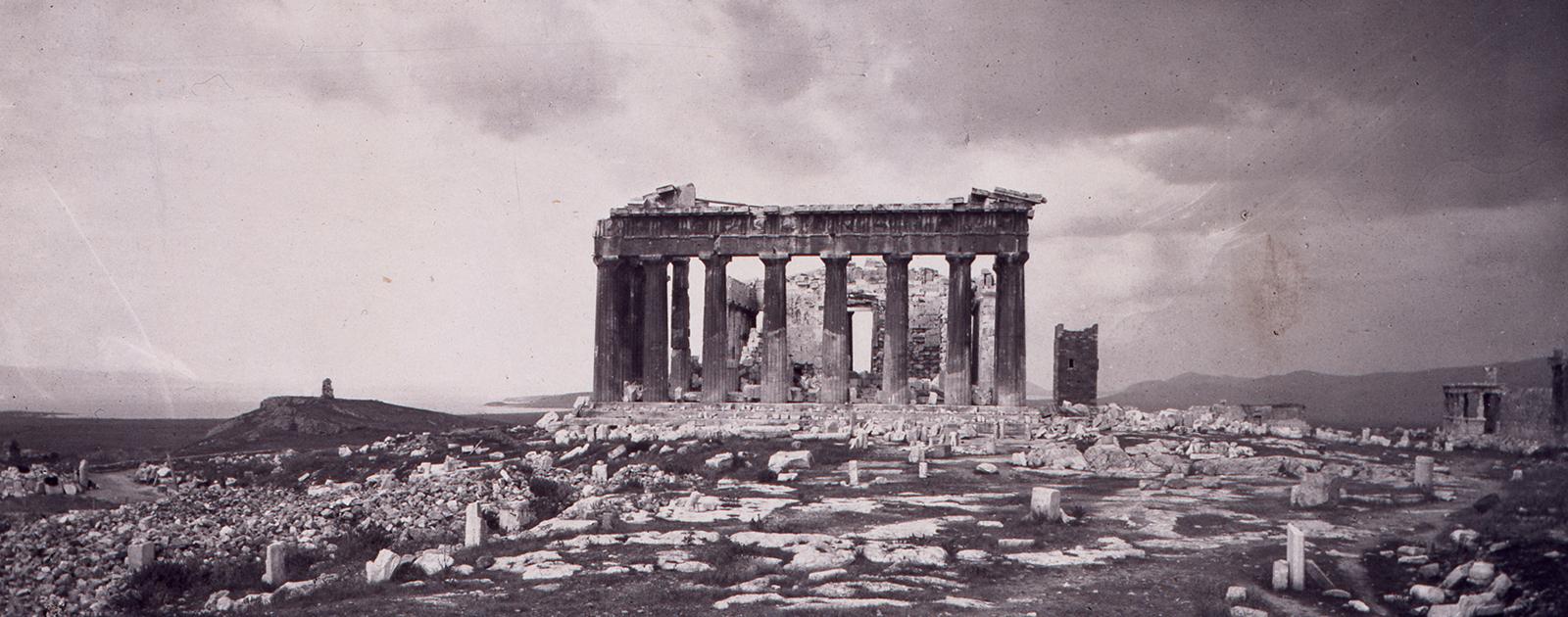In the wake of the Fall of Constantinople in 1453, Greece became a province of the Ottoman Empire until it succeeded in winning independence through arduous campaigns of the 1820s.
In the words of one 17th-century traveler, “[Greece] hath been near two hundred years under the dominion of the Turks and is very much depopulated.” Practically inaccessible to the Western world, with a hostile political regime not to mention barriers of language and religion, Greece was a place to which a few brave travelers succeeded in traveling.
This exhibition brings together the earliest published accounts of intrepid English, French, and Dutch explorers who, having visited Greece, were moved to record their experiences in print. These publications were often illustrated, and by the 18th and 19th centuries sometimes in a sumptuous manner. They also reveal an organic growth of knowledge about Greece, from 17th-century fantasies familiar from Shakespeare’s Midsummer Night’s Dream, to the scholarly mapping out and minute recording of inscriptions and monuments.
Interest in the ancient monuments was only one pursuit. The sheer difficulties of reaching Greece in early times meant that groups of individuals often traveled together under royal patronage, gathering information that also included natural history as well as local customs and costumes.





